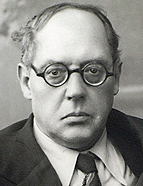

Alfredo Pimenta often defends this pursuit of historical objectivity, in line with Fustel Coulanges (whom he often quotes, although he does not follow his ideas of history as a science in a linear fashion) and the systematic analysis of sources as a guarantee of historical truth (“[...] the best historians are those who stay closest to the texts, interpret them with confidence and only write and think like them” – Idade Média, problemas e soluções [The Middle Ages, problems and solutions], 1946, p. xiv). However, his works ultimately reveal a certain tension between this apology for objective history and an ambition to rewrite national history through the prism of traditionalist nationalism, apologetic towards the Estado Novo, and focused on an idea of the mission that Portugal was supposed to fulfil: “in the History of Portugal, everything that glorifies the Portuguese nation is true; everything that depresses, diminishes, weakens or disparages it is false” (Novos estudos filosóficos e críticos, 1935, p. 107).
This position was in line with the historiographical paradigm of the time. It is a fact that, since the second half of the 19th century, the uses of history had been diametrically opposed (from the monarchist to the republican and traditionalist camps) in the sense of constructing narratives that supported each group’s different views of the nation; but they were also intended to fulfil a need for the “renationalisation” of the country. However, even within the same group, narratives are not always entirely consistent. Pimenta does not offer a perspective of regressive utopia such as that glimpsed by Paulo Archer de Carvalho in Integralismo Lusitano, although he does value historical figures considered to be role models; nor is there agreement with authors from other traditionalist currents regarding the legitimacy of King Manuel II or the descendants of King Miguel; and, already in the 1930s, the research of the historian from Guimarães would focus mainly on the Middle Ages, moving away from the Restoration, the other paradigmatic traditionalist period.
This work is financed by national funds through FCT - Foundation for Science and Technology, I.P, in the scope of the projects UIDB/04311/2020 and UIDP/04311/2020.
